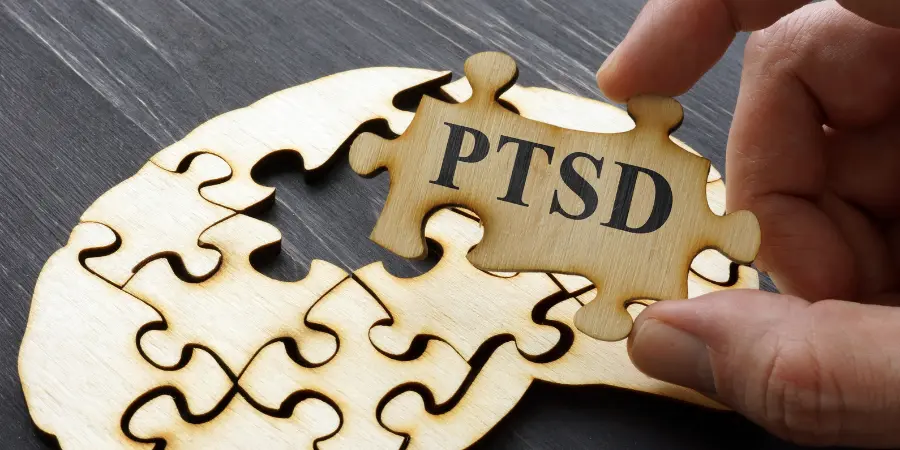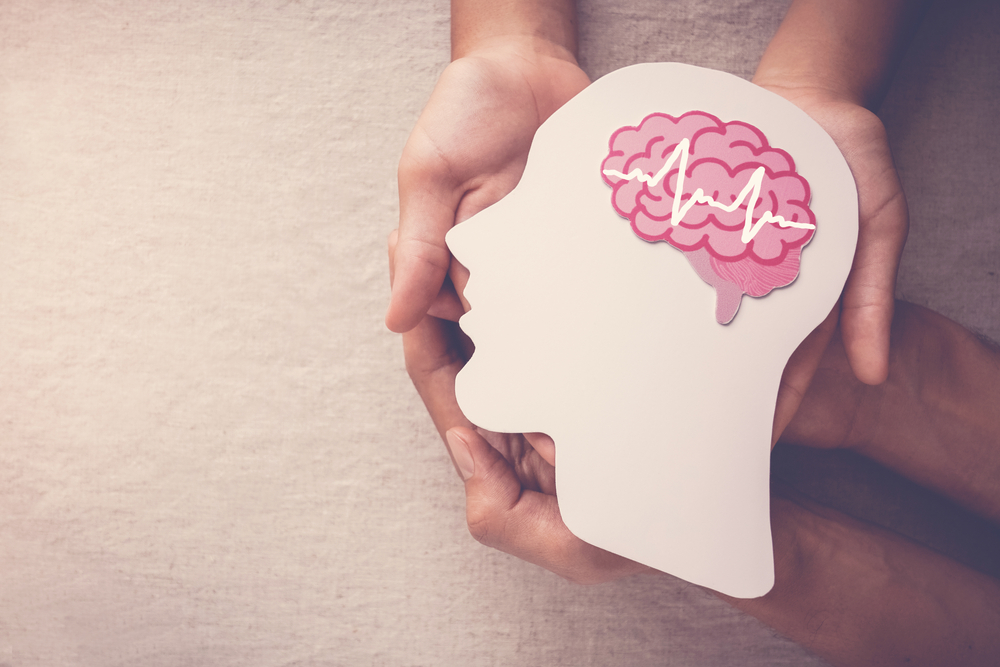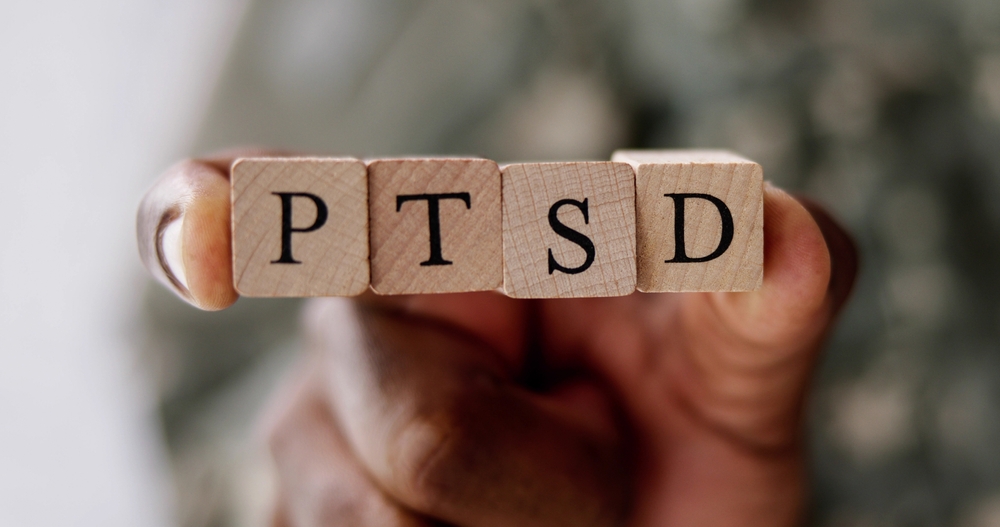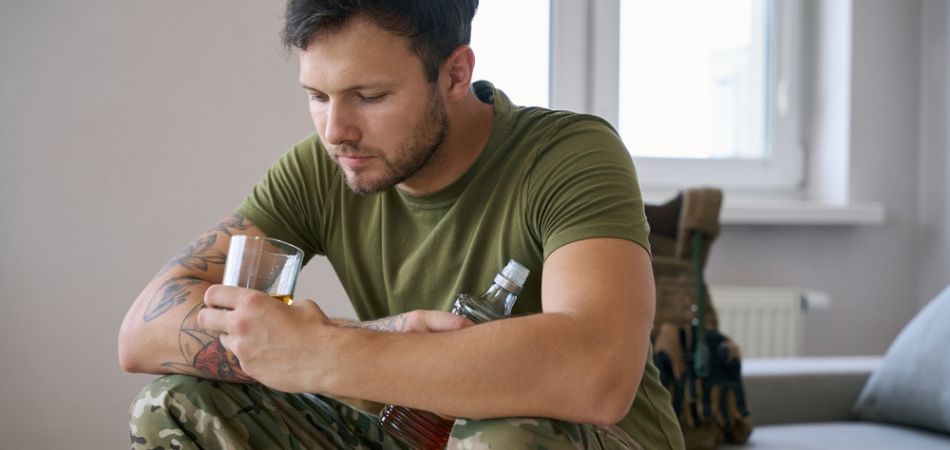Last Updated:
October 9th, 2025
PTSD and Addiction | Symptoms and Treatment
Post-Traumatic Stress Disorder (PTSD) is a mental health condition commonly associated with exposure to traumatic or frightening events. While many of us can encounter traumatic incidents in our lifetimes, not all of us will suffer from PTSD. According to recent findings, around three in every hundred people in the UK will develop PTSD at one stage in their life.
If an individual with PTSD also suffers from addiction, this is known as a co-occurring disorder. Below you’ll find information about PTSD and addiction, how they relate to one another and what to do if you or a loved one require support.

What is PTSD?
PTSD is a condition that arises in individuals, usually in response to a highly traumatic incident such as sexual assault or exposure to dangerous conditions. For example, if an individual was subjected to an event that caused them to feel particularly vulnerable, powerless, or helpless, this could result in PTSD.
Some commonly reported cases of PTSD have come about after an individual experienced one of the following:
- A natural disaster
- Military combat
- Violent assault
- Childhood abuse
- Sexual assault
- Losing someone close to you
Why do people with PTSD suffer from addiction?
Addiction is a chronic illness that leaves users compulsively seeking out substances, like drugs or alcohol, or behaviours (such as gaming) excessively, and to a point where it can cause considerable harm to their health and wellbeing. Fortunately, however, those who struggle with addiction can get the help they need through regular treatment and support, engaging with a programme to secure long and lasting recovery.
Though the ways in which each person experiences PTSD will be unique and specific to them, it is common for those with the condition to suppress their fears, turning to addictive substances to keep things on an even keel. This is because those with some form of unresolved trauma might abuse mind-altering substances like alcohol or drugs to numb their feelings or escape painful memories. With commonly witnessed symptoms of PTSD including flashbacks, nightmares, aggression, and severe anxiety, it is no wonder that those with PTSD might see addictive behaviours as the only alternative.
However, while this method might provide a temporary reprieve, it is unlikely that this will do anything more than exacerbate the problem in the long term and create yet another source of pain for someone who is already suffering. Therefore, regular access to treatment and restorative activities is considered the most effective way to combat PTSD, getting to the root of the problem and establishing healthier coping strategies so that you no longer need to turn to these addictive behaviours again.
Symptoms of PTSD and addiction
As PTSD is a condition which leaves those suffering unable to return to their lives as normal after a painful or traumatic incident, this can cause considerable difficulties in many areas of life. Addiction, in much the same way, can have a huge impact on quality of life, leading individuals to become so entrenched in their dependence that they lose sight of all that was once important to them.
Some of the signs and symptoms associated with both PTSD and addiction include:
- Withdrawal from friends and family
- Avoidance (not wanting to be around reminders of past experiences)
- Anxiety and depression
- Extreme changes in mood
- Self-destructive behaviour
Things you might not know about PTSD and addiction
As many individuals without the condition can often misunderstand PTSD and addiction, we thought we would outline some interesting facts below:
PTSD can arise months, even years, after a traumatic event…
It is common for individuals to assume that symptoms of PTSD will immediately manifest themselves after a traumatic event, almost as a direct response to the incident. However, this is not always the case, and those who experience a later reaction to this trauma are facing what is known as delayed-onset PTSD.
Delayed-onset PTSD can occur for a number of reasons. For example, some individuals might experience a ‘fight or flight’ reaction to the incident, with their bodies sensing the initial shock as an indicator that they are in a life-threatening situation, burying these memories deep and storing them away to protect themselves in times of danger.
In any case, it can be detrimental to those who have PTSD to misinform them that signs and symptoms will present themselves immediately in response to trauma, as this is not always how the condition appears in sufferers, and some may turn to addictive behaviours later in life as a method to cope or suppress their unwanted thoughts and memories.
The signs and symptoms of PTSD and addiction will present differently in everyone…
Some of us imagine PTSD and think of a war veteran, having returned back from combat with distressing and painful memories. However, much like an addiction, trauma comes in many forms and can impact any of us at any time. Therefore, it is important we remember that there is no one criteria for PTSD or for addiction, and while those who are exposed to particular conditions might be more at risk of developing the condition, this does not mean that others are immune from it.
Many individuals suffering from PTSD will turn to addiction as a method of self-medication…
It can be challenging for those who have suffered a frightening or traumatic incident to open up and think back to events in their past that have so deeply affected them. Agreeing to accept treatment can seem like quite a tall order, and it is more common than you think for those with PTSD to find other methods to keep their trauma at bay. In fact, in the UK, over 40% of people with a substance use disorder will also have a PTSD diagnosis.
How do I know it is time for addiction treatment?
Here at Primrose Lodge, we know just how unbearable it can feel to live your daily routine, suffering from addiction alongside the weight of unresolved trauma. It might feel frightening to agree to rehab treatment, letting down your guard with unfamiliar faces that do not understand the weight of what you have experienced.
However, if you feel that, along with your diagnosis of PTSD, you are reliant on addictive substances or behaviours to keep yourself stable, it might be time to start considering treatment. At Primrose Lodge, we are addiction specialists trained to help you learn healthy coping mechanisms. These could help you manage your PTSD symptoms in a healthy way, without having to turn to addictive substances or behaviours. By offering a person-centred approach, this gives us a human touch, making our programme both comprehensive and effective. Our skilled team of counsellors and therapists are qualified and experienced in delivering treatments that are incredibly helpful to trauma sufferers, including:
- Trauma-informed therapy
- Cognitive Behavioural Therapy (CBT)
- Therapeutic Meditation
We also deliver several highly effective and healing holistic therapies such as art, music, and mindfulness, providing a great alternative to talking therapies, where our clients can safely explore their emotions surrounding trauma or an active addiction with a qualified therapist present.
We can help
Those who undergo trauma are usually fearful of dropping the mask or appearing vulnerable to others, as they feel that this could display weakness and leave them open to danger. However, we would like to assure you that we at Primrose Lodge take unresolved trauma very seriously and know the potential consequences of leaving such a condition untreated. For this reason, our skilled team delivers a number of treatment methodologies, proven to be effective in treating both addiction and unresolved trauma. By treating addiction alongside any other co-occurring illnesses, this means that you can leave us with all the tools you need to start living your life, your way. If you would like to know more about the addiction rehab process, do not hesitate to contact a member of our team right away, and let us help you break free from your past and step into a whole new world of recovery.









